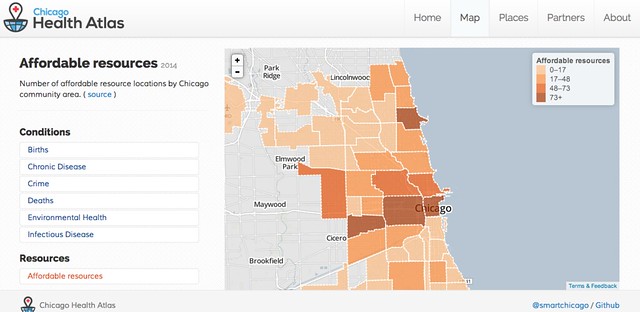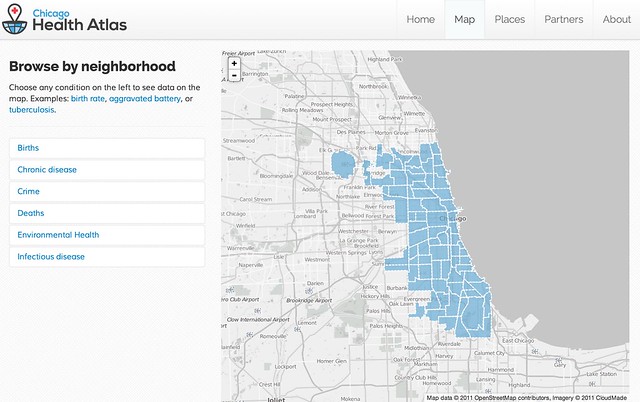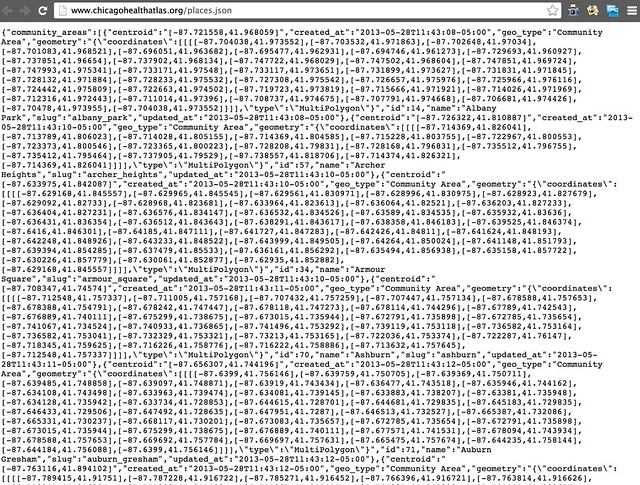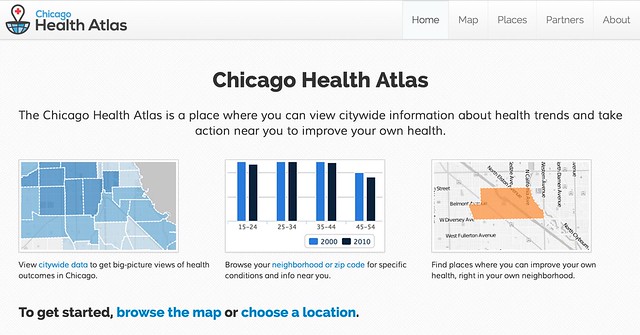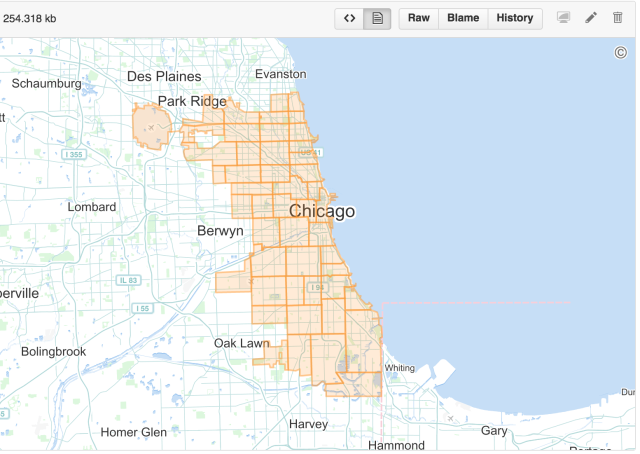This morning Abel Kho and a number of his colleagues presented “The Chicago Health Atlas: A Public Resource to Visualize Health Conditions and Resources in Chicago” at the AMIA 2012 conference at the Conrad Hilton here in Chicago.

Abel Kho
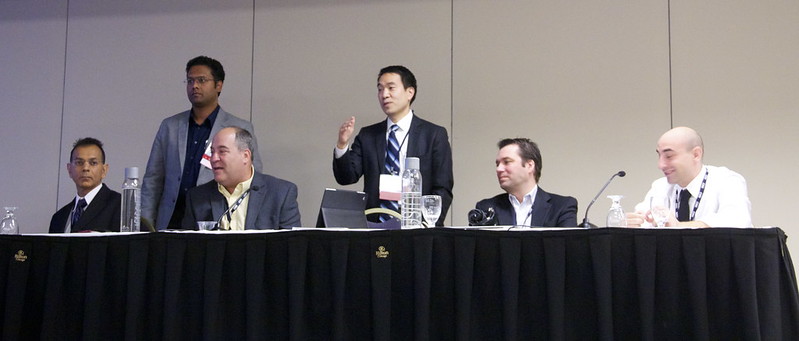
Abel N. Kho, and John P. Cashy, Northwestern University; Bala N. Hota, Cook County Health and Hospital Systems; Shannon A. Sims, Rush University; Brad A. Malin, Vanderbilt University; William L. Galanter, MD, University of Illinois
The talk covered a number of topics, including program design, anonymizing records, Institutional Review Board approvals, and data extractions (diagnoses, medications, and laboratory tests for all patients seen at participating institutions).
Today we also published some new data that came out of their work— diabetes rates by zip code from 2006 – 2010. Stay tuned for more data and an updated user interface on the Chicago Health Atlas in the weeks to come.

Abel Kho shows the Chicago Health Atlas

